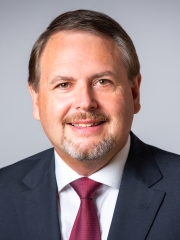Dr. Peter Michael Link

researcher, senior lecturer, associated member of CLISEC
Address
Office
Office hours
currently by appointment only, please contact me by eMail.
Contact
Research Group Climate Change and Security
Institute of Geography
Cluster of Excellence CliSAP
Universität Hamburg
Research Unit Sustainability and Global Change
Sprecher des Arbeitskreises "Geographie der Meere und Küsten" (AMK) der Deutschen Gesellschaft für Geographie (DGfG)
Former board member of the Coastal and Marine Specialty Group (COMA) of the Association of American Geographers (AAG)
Michael Link studied Environmental Sciences at the University of California at Berkeley (USA) and Geography at the University of Kiel, Germany. In his Diploma thesis he assessed the potential risks of oil spills in the North Sea arising from ship accidents based on an analysis of the Amoco Cadiz and Pallas incidents.
Michael’s Ph.D. research involved an assessment of the economic impacts that a weakening or a shutdown of the Atlantic thermohaline circulation would have on the fisheries in the Barents Sea by means of bioeconomic modeling. In his Ph.D. thesis he also analyzed the overall socioeconomic impacts of a THC shutdown using the integrated assessment model FUND. His work was part of the research project INTEGRATION. Michael has also graduated from the International Max-Planck Research School on Earth System Modelling in Hamburg.
Research as part of the research projects CIRCE and TranSust.Scan involved modeling the implications of land use changes on a European and local level. Further work included the expansion and improvement of the fisheries model developed in the Ph.D. research.
Current research within the Cluster of Excellence "Climate System Analysis and Prediction" focuses on human-environment interaction with an emphasis on the climate change - land use - conflict/cooperation - nexus in Africa. In particular, Michael works on the inclusion of security-related aspects in models that address the impacts of climate change and the coupling of optimization models with Geographic Information Systems. In this context, a geographic emphasis lies on the Nile River Basin.
Furthermore, Michael conducts research on local and regional ecological and socio-economic impacts of the development of renewable energies in Northern Germany and the associated land use changes.
Michael Link is also actively involved in the specialty groups on coastal and marine geography of the German Geographical Society. He was main organizer of the 33rd annual meeting of the Arbeitskreis Geographie der Meere und Küsten, which took place in May 2015 in Hamburg.
Michael's current position focuses on teaching classes of predominantly human geography in the training program of future primary school teachers.
